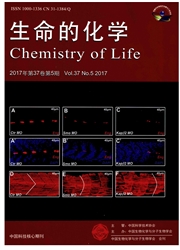

 中文摘要:
中文摘要:
肿瘤免疫逃逸在肝癌发生发展中起着重要作用。树突状细胞和免疫细胞的不成熟或功能低下将导致机体免疫功能被抑制而促进肝癌的发生发展。多种细胞因子如IL-10、TGF-β、VEGF等会抑制机体免疫功能使肝癌生长增殖或直接促进肿瘤的发生发展。肝癌细胞分泌Fas L及其表面Fas的表达减少会诱导免疫细胞凋亡或避免T细胞等免疫细胞的杀伤作用从而逃避机体免疫作用。因此,本文将从免疫细胞、肿瘤细胞本身以及两者间的相互作用三个方面阐述肝癌免疫逃逸的分子机制。
 英文摘要:
英文摘要:
The escape from immune surveillance is a key feature of hepatocellular carcinoma(HCC). Immaturation of dentritic cell(DC) and intriguing of other immune disorders is a powerful shield of tumor cells in promoting tumorigenesis. Multiple cytokines such as IL-10, TGF-β and VEGF helps the tumor formation and proliferation through inhibition of the immune surveillance in the body. Decrease in death cell receptor(FAS) and the secretion of Fas-L by HCC can induce targeted immune cell apoptosis and hence can hide itself from the cytotoxicity of T-cells. This review will describe immune escape mechanism for hepatocellular carcinoma by explaining immune cells, tumor cells and the interaction between them.
 同期刊论文项目
同期刊论文项目
 同项目期刊论文
同项目期刊论文
 期刊信息
期刊信息
